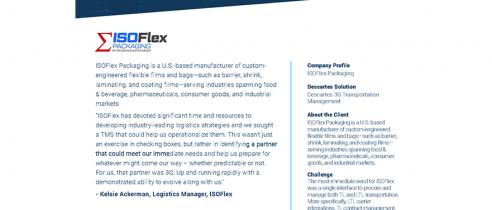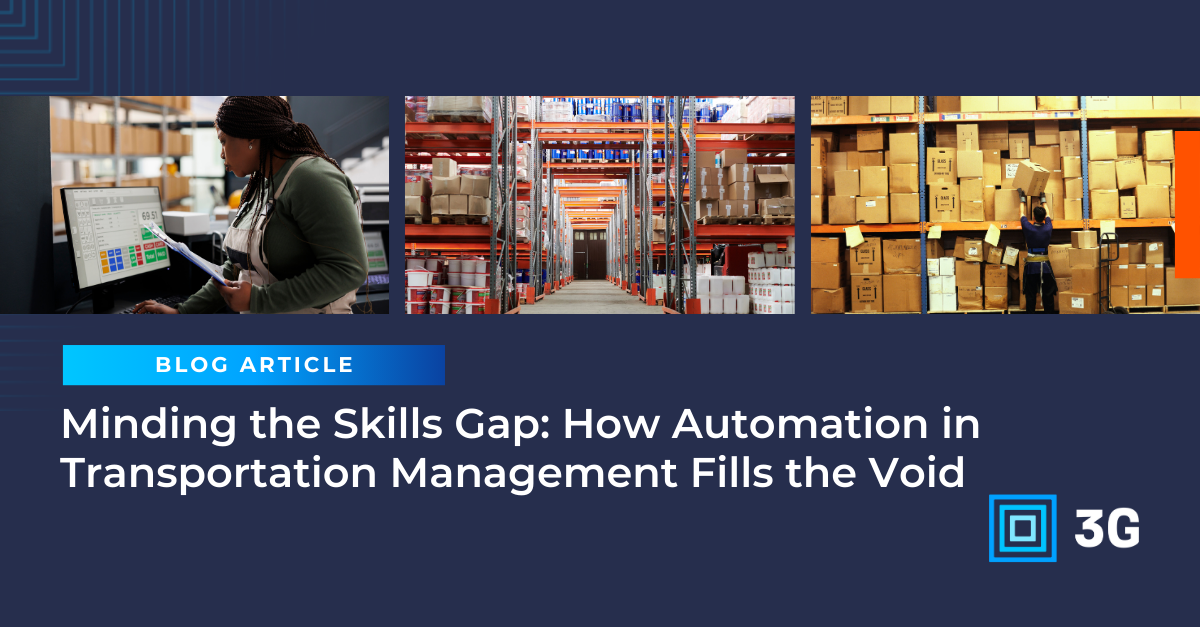In a recent study, 73% of surveyed logistics professionals said they face notable labor shortages, and that skilled knowledge workers were the hardest positions to fill.
As the logistics industry evolves, it encounters a widening skills gap where the demand for skilled labor significantly outpaces supply. This gap poses a challenge for companies trying to keep up with the rapid growth of e-commerce and changing consumer expectations.
Automation and advanced software solutions are pivotal in bridging this gap, empowering shippers to reduce operational burdens while improving efficiency.
The Impact of the Skills Gap in Logistics
The logistics sector grapples with a pressing labor shortage, highlighted by a high turnover rate and a growing need for tech-savvy workers. The consequences of this skills gap manifest as delays, errors, and increased costs, stemming from a lack of qualified personnel to manage complex transportation networks.
With a shrinking pool of skilled labor, logistics companies find it increasingly challenging to maintain their operations effectively.
In fact, many organizations struggle to fill essential roles, from warehouse staff to transportation managers. This scarcity of skilled workers can lead to higher operational costs, impacting the bottom line and making it difficult for companies to compete in a fast-paced market.
Additionally, the lack of qualified staff can force companies to rely on overtime or temporary hires, which often results in increased labor costs and inefficiencies. Teams are also under pressure to manage more complex systems, causing burnout and further increasing turnover rates.
Without the right expertise, innovation can slow down, too, preventing organizations from adopting new technologies and scaling effectively.
How Transportation Automation Addresses the Skills Gap in Logistics
Automation offers a powerful solution to the skills gap in logistics by streamlining tasks and allowing companies to operate more efficiently with a smaller workforce.
For example, with 3G Pacejet Shipping, a manufacturer and distributor of muscle self-recovery products, Tiger Tail, reduced their order processing time by 75%, while BarProducts.com lowered their labor costs by the same percentage.
Here are some specific ways automation transforms transportation management:
- Automating manual tasks: Automation reduces the reliance on manual work, which can be time-consuming and error-prone. By automating repetitive tasks such as data entry and inventory management, logistics companies can improve accuracy and free up staff to focus on more strategic activities. For example, automated order processing can drastically reduce the time spent on order fulfillment, allowing workers to allocate their efforts more effectively.
- Enhancing decision-making: Advanced software solutions provide valuable data insights, enabling shippers to make smarter, faster decisions without requiring a highly skilled analyst on staff. These tools can analyze historical shipping data to identify trends, optimize routes, and predict potential delays, helping logistics companies maintain operational efficiency — even during peak seasons.
- Real-time tracking and analytics: Automation enhances visibility across the supply chain, allowing shippers to monitor shipments in real-time. This capability facilitates proactive planning, enabling companies to address issues before they escalate. For instance, real-time tracking allows businesses to communicate estimated delivery times more accurately to customers, enhancing satisfaction.
- Automated routing and load optimization: Digital solutions for routing and load optimization reduce reliance on manual processes. These technologies can evaluate various shipping options to determine the most efficient loads and routes, minimizing transportation costs and transit times. This kind of automation allows companies to meet demand without overburdening their workforce.
Stay Competitive and Mitigate Labor Shortages
As labor shortages continue to challenge the logistics industry, adopting automated solutions is crucial for overcoming these obstacles and maintaining a competitive edge. Automation empowers organizations to streamline their operations, helping them thrive even with a limited workforce.
To navigate the skills gap in logistics effectively and boost your operational performance, explore how the 3G Transportation Suite can improve your operations.








